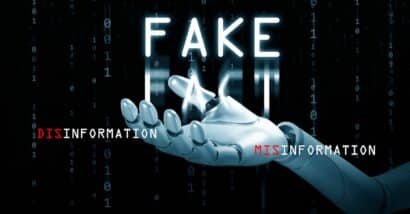 If consumers receive a credit or debit card receipt containing certain card information, they may be eligible for a FACTA lawsuit.
If consumers receive a credit or debit card receipt containing certain card information, they may be eligible for a FACTA lawsuit.
Under the Fair and Accurate Credit Transactions Act, retailers and merchants are prohibited from including more than the last five digits in a card number or any part of a card’s expiration date on a credit or debit card receipt. If consumer information in printed in violation of federal law, consumers may be eligible for compensation.
The Fair and Accurate Credit Transactions Act (FACTA) sets rules and guidelines for merchants and retailers to follow regarding consumer information. Congress passed the act in 2003 in an attempt to protect U.S. consumers from the growing threat of identity theft and fraud.
Before FACTA was enacted, merchants and retailers were not limited in the information they could include on receipts. With each credit or debit card receipt containing different card information, it was easier for perpetrators to piece together credit card numbers and expiration dates.
FACTA limits the information which is included on receipts and standardizes the amount of information retailers can include. FACTA specifically states “no person that accepts credit cards or debit cards for the transaction of business shall print more than the last 5 digits of the card number or the expiration date upon any receipt provided to the cardholder at the point of the sale or transaction.”
A merchant may not print any digits of a credit card other than the last five digits. Any of the following examples are violations of FACTA debit card receipt rules.
- 11** **** **** 4444
- **** **22 **** 4444
- **** **** **33 ****
Even if a merchant prints less than five digits, if the digits are any except the last five on the card, there is a risk of identity theft and credit card fraud. If a perpetrator has multiple receipts with different digits of the same credit card, they may be able to piece together the complete card number and misuse consumer information.
A merchant may not print any part of an expiration date of a credit card or debit card anywhere on a receipt. Any of the following examples are violations of FACTA credit card receipt rules.
- EXP: 03/18
- EXP: 03/2018
- EXP: 032018
- EXP: 0318
- Expires: 0318
- Exp Date: 03/18
- Exp Date: 03/20/18
- EXPIRY: 03/18
- 03/17
- 0317
- Exp Date 03/**
- EXP” **/18
Expiration dates are often used in online transactions for card authentication. If an identity thief has the expiration date of a card off a credit or debit card receipt, they have a better chance of successfully committing fraud.
FACTA rules apply to all electronically printed receipts such as those printed by cash registers, self-service systems, and restaurants. On a credit and debit card receipt, sensitive information is often masked or replaced through truncation. Truncation replaces digits or letters with symbols such as * or #. These symbols act as placeholders on the receipt and in transaction systems. However, truncation can be done incorrectly through either user or system error, resulting in accidental FACTA violations which reveal more information than intended.
Merchants and retailers who commit accidental, willful, or negligent violations of FACTA credit card receipt rules are in violation of federal law. Consumers who had their information wrongfully printed on a credit or debit card receipt may be eligible for legal action under FACTA. A FACTA lawsuit could help recover compensation for potential or actual credit card fraud, identity theft, and more.
Free FACTA Class Action Lawsuit Investigation
If you made one or more purchases and the retailer provided you with a receipt that contained more than the last five digits of your credit or debit card number or the expiration date, you may be eligible for a free class action lawsuit investigation and to pursue compensation for these FACTA violations.
ATTORNEY ADVERTISING
Top Class Actions is a Proud Member of the American Bar Association
LEGAL INFORMATION IS NOT LEGAL ADVICE
Top Class Actions Legal Statement
©2008 – 2025 Top Class Actions® LLC
Various Trademarks held by their respective owners
This website is not intended for viewing or usage by European Union citizens.














